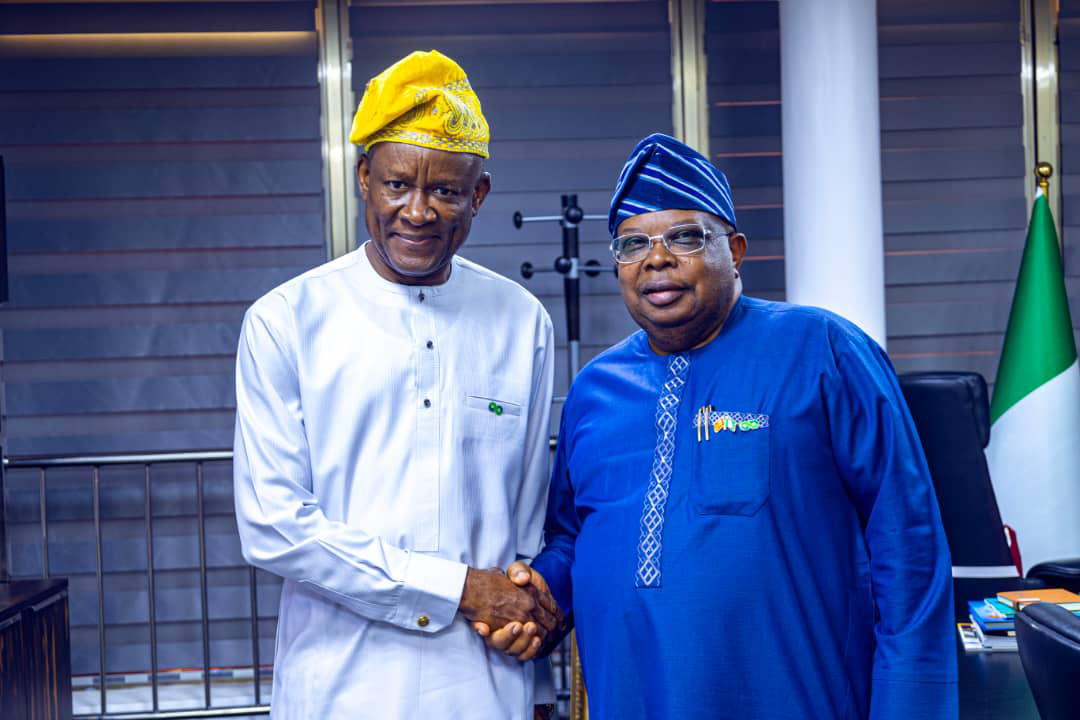Nigeria Eyes Industrial Leap Through Mining and Automotive Sectors – FG, NCSP Strategize on Economic Transformation
Nigeria Eyes Industrial Leap Through Mining and Automotive Sectors – FG, NCSP Strategize on Economic Transformation
DG NCSP with the Honorable Minister of State for Industry, Investment and Trade
Abuja, Nigeria – May 21, 2025
In a major step toward accelerating Nigeria’s industrial transformation, the Director-General of the Nigeria-China Strategic Partnership (NCSP), Mr. Joseph Tegbe, has met with the Honourable Minister of State for Industry, Trade and Investment, Senator John Owan Enoh, to discuss strategic collaboration aimed at repositioning the country’s economy through the mining and automotive sectors.
The high-level meeting, held in Abuja, aligns with President Bola Ahmed Tinubu’s Renewed Hope Agenda, which seeks to transition Nigeria from an import-dependent economy to one driven by local production and exports.
Senator Enoh reiterated the Federal Government’s focus on three priority sectors—Sugar, Cotton-Textile-Garment (CTG), and Automobiles—highlighting the establishment of dedicated industry councils to strengthen local production, boost domestic demand, and enhance Nigeria’s global industrial competitiveness.
“At the heart of this transformation is the Nigeria First Policy,” the Minister stated. “This directive compels Ministries, Departments, and Agencies (MDAs) to prioritize Nigerian-made products and services in public procurement, fostering local enterprise growth, creating jobs, and reducing reliance on imports.”
Mr. Tegbe underscored the NCSP’s commitment to this agenda, emphasizing Nigeria’s potential to evolve from a consumption-driven economy to a production-oriented development partner. He drew parallels with Brazil’s $94.41 billion export figure to China in 2024, pointing to similar potential for Nigeria—particularly through value-driven sectors like agriculture, solid minerals, and manufacturing.
DG NCSP presenting a gift to the Honourable Minister for Industry, Trade and Investment
Highlighting the mining sector’s untapped capacity, Tegbe pointed to over 40 commercially viable minerals that could serve as critical inputs for industrial growth. He stressed the urgent need for Nigeria to shift from exporting raw minerals to building a robust ecosystem for processing, refining, and beneficiation—supported by investment incentives and regulatory reforms.
To that end, the Industrial Revolution Working Groups (IRWG)—an initiative under the Presidential Council on Industrial Revitalization—have begun addressing regulatory hurdles, infrastructure gaps, and funding challenges to unlock growth in the mining value chain.
In parallel, Nigeria’s automotive sector is undergoing structural transformation, with a national automotive policy designed to move from basic vehicle assembly to full-scale manufacturing. Senator Enoh said the Nigeria First Policy is already stimulating demand for locally assembled vehicles, boosting investor confidence, and laying the foundation for a future of electric and energy-efficient mobility.
Mr. Tegbe also highlighted strategic partnerships secured with leading Chinese firms such as Huawei, China Communications Construction Company (CCCC), Chilwee Group, and Choice International Group (CIG). These companies are injecting advanced technology, skilled manpower, and capital into key sectors—automotive, mining, manufacturing, communications, and clean energy.
“These collaborations are critical to job creation, technology transfer, and Nigeria’s industrial innovation,” Tegbe said. “Nigeria is not just a consumer market—it is becoming a strategic industrial partner.”
As Nigeria pursues a 21st-century industrial economy driven by innovation and global competitiveness, the Nigeria-China Strategic Partnership continues to play a pivotal role in delivering cross-border investments and infrastructure critical to the nation’s economic transformation.
Under President Tinubu’s leadership, Nigeria is forging a new industrial future—built on production, powered by partnership, and guided by the Renewed Hope Agenda.






No comments